I was told to get a personal loan to install heating in my community housing home says disabled mother Tammy Kennedy
A disabled mother said that she was threatened with immediate eviction by a not-for-profit after missing a meeting because she says her son was in hospital.
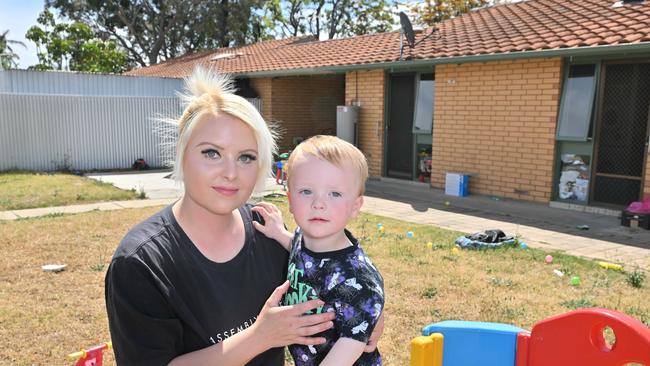
SA News
Don't miss out on the headlines from SA News. Followed categories will be added to My News.
A mother with disabilites says she was threatened with immediate eviction from emergency accommodation because she missed a meeting with the SA Housing Trust due to her son being hospitalised – only to later be offered a decrepit, bug-infested permanent house with no heating.
Adelaide mother of one Tammy Kennedy, a pensioner incapacitated for work with a spinal condition, needed help after finding herself single and no longer being able to pay private rent, especially after having spinal surgery.
After she was evicted in June, she was placed into emergency motel accommodation partially paid for by SA Housing Trust and managed by a not-for-profit.
She says she was required to apply for four houses a week and have her child sighted by government authorities once a week.
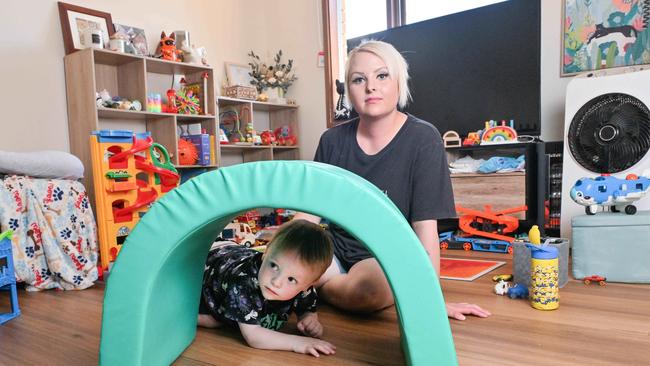
One day Ms Kennedy was also required to attend a meeting to talk about signing a debt repayment agreement for the $800 debt she incurred at her private rental property, as the Housing Trust had originally paid the bond.
But she said her son fell sick and she was unable to attend.
She said the next day staff from the not-for-profit that runs emergency accommodation for the state government met with her and wanted medical evidence to show she had been in hospital.
“They wanted a sick certificate or written note from doctors at the hospital – and I kept saying I didn't have one on me because I didn’t think to ask for one because I didn’t think I needed that just for missing a housing meeting,” she said.
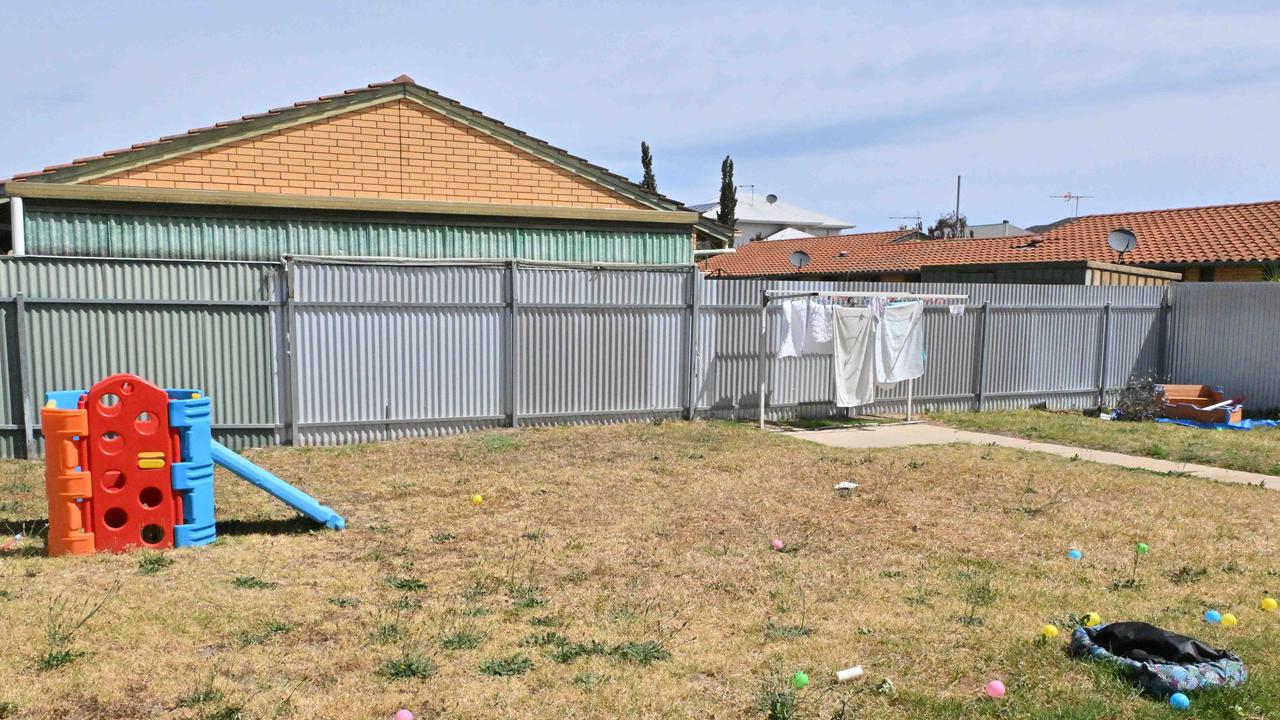
“But I told them I hadn’t gotten one as I wasn’t aware I needed one at the time.”
She said she was threatened with eviction her after she didnt attend the meeting was told she needed to sign a debt repayment agreement “which we did”.
“Still after that they called us twice more and told us we are liars and said most people in emergency accommodation would and do lie about their children being in hospital to get out of things.
“They then threatened to have me evicted the next day.”
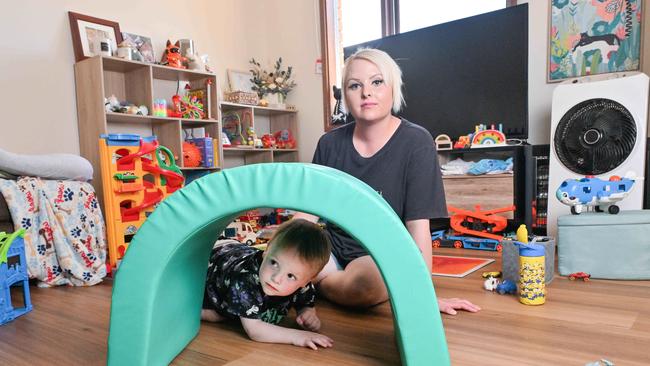
In August, Ms Kennedy was given permanent community housing (owned and run by another not-for-profit which is predominantly funded by the state government) but was shocked when the provider told her that the 65-year-old house had no heating – and that she would need to take out a personal loan to install heating herself.
“So even when you’ve just been living in a motel and follow all their rules to secure a place, once you move in unless you are extremely lucky you’ll have no heating or cooling,” she said.
“There were also structural issues with the house. And a one inch gap under the front door.”
This gap would prove to be particular problematic when temperatures dropped to the low single digits throughout Adelaide’s winter.
Ms Kennedy applied for a zero interest loan for people on low incomes to get furniture and heating installed, but a loan provider said that it was unable to extend credit to cover a heater being installed on top of the money they loaned for her furniture.
“You lose your rent assistance when you go into community housing and my rent was $286 a week and I get $700 on the pension.”
She said she was also often unable to run her radiator heater for extended periods of time because the house’s ageing electrical system.
“We couldn’t run more than two appliances at once or a heater so my son gets pneumonia –he’s only two, he ended up in hospital (again).”
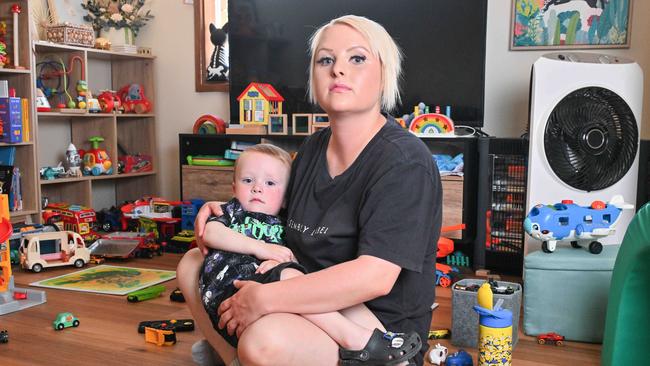
Ms Kennedy said she her asthma and rheumatoid arthritis also worsened over the winter.
She said was already reluctant to pay for heating to be installed.
“Why would do for that an old place that might just demolished and then I’m stuck with the debt?” she said.
She has asked to be transferred, but says she has been repeatedly told that no houses are available.
The SA Housing Safety Authority’s minimum housing standards require houses to have a “continuous supply of electricity” but landlords or government houses are not required to have fixed heating.
In a statement, SA Housing Trust said: “Emergency ccommodation is the last resort in the provision of shelter.
“It is an expectation that clients make all reasonable attempts to apply for properties. These reasonable efforts will be tailored to the individual based on their specific circumstance and set with the client and their case manager – there are no set expectations.
“Last financial year, more than $15 million was allocated towards emergency accommodation that provides short-term, crisis accommodation for approximately 800 rooms across the state.
“Anyone residing in community housing with concerns should raise these with their landlord. “They can also register for public housing.”





